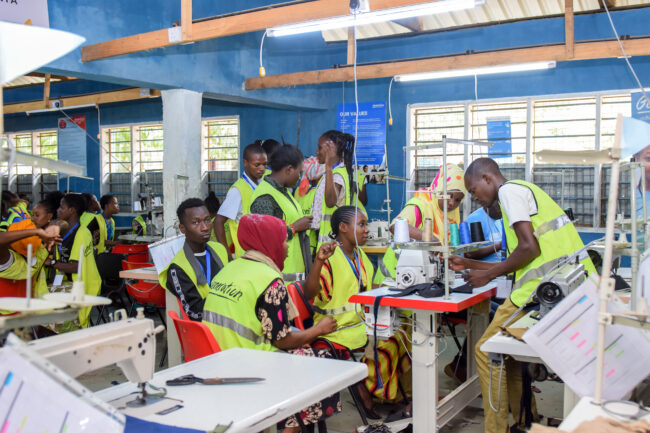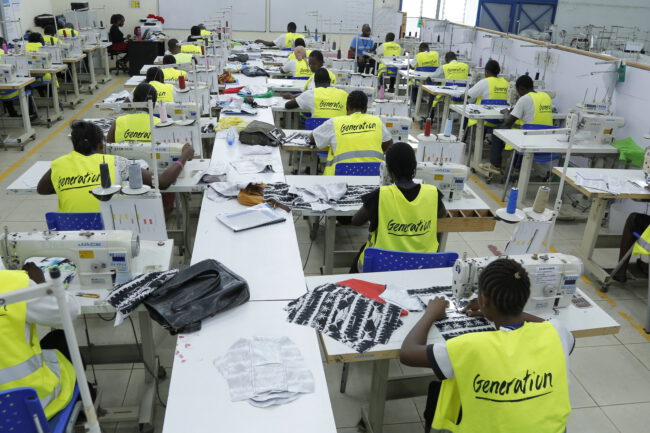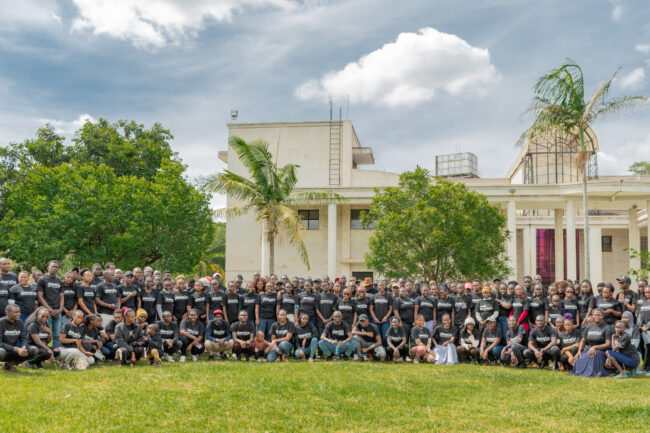Generation Programme Kenya (Generation Kenya) is a nonprofit that delivers sector-leading employment and income results across 8 professions and 27 countries. We prepare, place and support Kenyan youth into decent employment that would otherwise be inaccessible while simultaneously seeking to improve how education to employment systems function. Under our project Skills. Opportunities. Growth., our aim is to effectively enhance the livelihoods of underserved youth in a sustainable way. We will achieve this goal by equipping Kenyan youth with the necessary market-oriented skills to prepare them for employment opportunities in the technology, apparel manufacturing, and customer service sectors. As a recipient of the 2024 exclusive top-up call, we will accelerate our ambitious expansion efforts, enabling us to unlock the potential of thousands more youth to secure meaningful work.
The Problem
One of the problems we are facing in Kenya is the gap between the demand and supply in the employment of jobs. In a study that we have conducted in 2011, 40% of the employers in various sectors have cited that there is a skills shortage at the entry-level, and therefore they have a hard time finding entry level employees. For example, in the textile and apparel sector, there is an annual shortage of 10,000-15,000 skilled labourers, 60% of which are sewing machine operators.
Besides the gap between demand and supply in the labour market, there are also high rates of youth unemployment in Kenya. In 2021, the youth unemployment rate was 13,84%, adding underemployment there is a total of 35% Kenyan youth (18-35) underemployed and unemployed. Young women are especially affected by unemployment and underemployment compared to men, at an average of 10% higher. The reason for this is that they have constrained access to the labour market because of cultural and social norms.
Specific to Generation Kenya, our learners (58% women) face significant structural barriers to access education and employment. This is expressed in the fact that 62% of our learners only have a primary or secondary school degree. Financially, over one-third of our learners cannot meet their daily financial needs or receive financial assistance. When they come to us, 93% are unemployed and the remainder is underemployed.
The Solution
Our project Skills. Opportunities. Growth. aims to close the skills gap and address the shortage of skilled workers in the manufacturing, customer service and Business Process Outsourcing (BPO) sectors. We seek to establish a scalable tested model to match youth with employment opportunities, in collaboration with our partners in these sectors, including employers with whom we co-design programs to meet entry-level needs.
In this project, we define our impact according to breadth, depth, and durability. Breadth is the total and annual volume of our graduates and employers. Depth refers to the employment and income outcomes for our alumni three to six months following graduation. Durability is the sustainability of employment, income, and well-being outcomes for alumni over time.
In the long term, we aim to achieve the following impact.
- Breadth: Provide high-quality training for 5,000 youth (50% young women) using our existing curriculum for the three sectors that we operate in – tech, apparel manufacturing, and customer service. This will provide them with valuable technical and soft skills relevant to the market.
- Depth: 4,000 youth matched to decent jobs within our three sectors.
- Durability: Provide mentorship and psychosocial support to our youth beneficiaries to support them to grow their careers with an aim of achieving sustainable income and well-being outcomes over time.
We will also collaborate with other counties to recruit and train youth in TVETs and deliver demand-driven programs.
Additionality
CFYE support will enable us to scale our programs to meet the market demand by increasing the number of learners by reducing the cost per learner to deliver training and support, enabling scale, and reducing cost per hire through improved operational efficiency.
In addition, CFYE funding will facilitate us to review and revise our strategies on how young people we engage can be better involved in co-designing, managing, monitoring, and evaluating key components along the education-to-employment value chain. We also anticipate that through a partnership with CFYE, there will be lessons to be shared to collaboratively increase economic impact for our youth. CFYE can also connect us to the critical stakeholders and partners that are currently engaged within the scope of these impact areas.
Without CFYE’s support, it would take longer to build an economically sustainable model to support youth.


